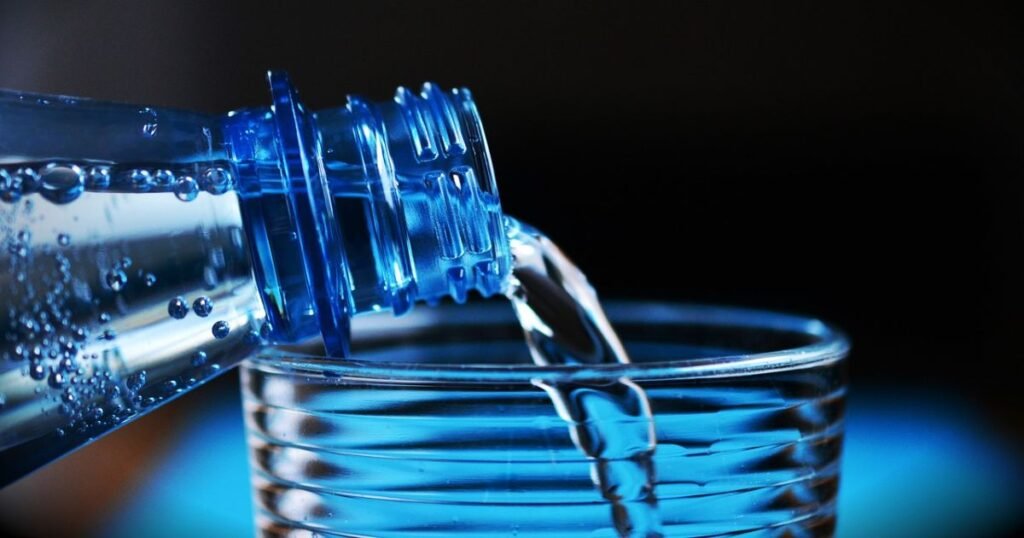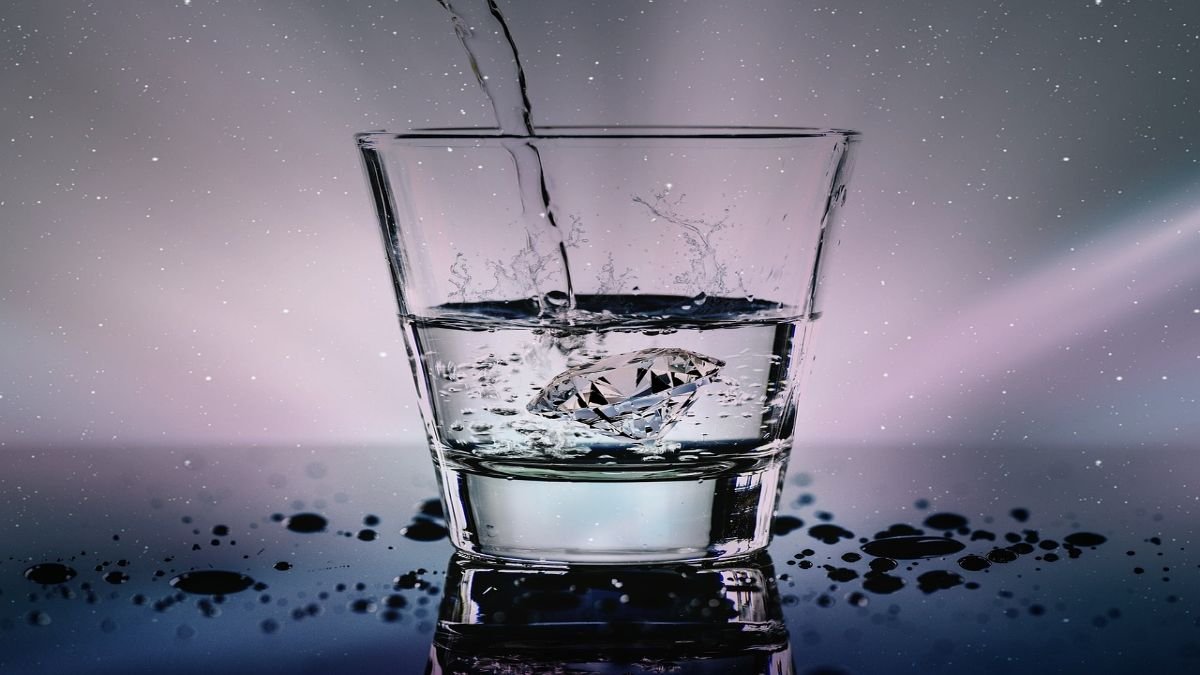Overview
Dehydration occurs when your body loses more fluids than it takes in, resulting in an insufficient amount of water to carry out normal bodily functions.
Water is essential for almost every system in your body, including regulating temperature, lubricating joints, delivering nutrients to cells, and maintaining skin elasticity.
When dehydration sets in, it can range from mild to severe, with the latter leading to life-threatening conditions if not addressed promptly.
This blog will explore what dehydration is, its causes, symptoms, risk factors, complications, diagnosis, treatment, and prevention strategies. We will also address frequently asked questions about dehydration to provide a comprehensive understanding of this critical health issue.
Table of Contents
What is Dehydration?

Dehydration happens when your body does not have enough water to function optimally.
Our bodies are made up of about 60% water, and this fluid is constantly lost through sweating, breathing, urination, and other bodily processes.
To maintain proper hydration levels, you must replenish the fluids you lose by drinking water and consuming water-rich foods.
In cases of mild dehydration, you may simply feel thirsty and a bit fatigued. However, when dehydration becomes moderate or severe, it can disrupt vital bodily functions and lead to more serious health problems, such as kidney failure, heatstroke, and seizures.
Dehydration is classified into three stages:
- Mild dehydration: This occurs when you’ve lost 1-2% of your body’s water content. It’s often easily corrected by drinking water.
- Moderate dehydration: At this stage, about 5% of your body’s water is lost, leading to more noticeable symptoms like dry mouth, lethargy, and headaches.
- Severe dehydration: This occurs when you’ve lost over 10% of your body’s water content, which can be life-threatening if not treated immediately.
Symptoms of Dehydration
The signs and symptoms of dehydration can vary depending on whether it is mild, moderate, or severe. Common symptoms of dehydration include:
Mild to Moderate Dehydration Symptoms:
- Thirst
- Dry mouth or dry, sticky saliva
- Dark yellow urine or decreased urination
- Dry, cool skin
- Headache
- Fatigue or lethargy
- Dizziness or lightheadedness
- Difficulty concentrating or mental confusion
Severe Dehydration Symptoms:
- Extreme thirst
- Little or no urination (or very dark-colored urine)
- Sunken eyes
- Rapid heartbeat and breathing
- Very dry skin that may feel shriveled
- Fever
- Low blood pressure
- Unconsciousness or delirium
- No tears when crying
Severe dehydration is a medical emergency and requires immediate medical attention.
Causes of Dehydration
Dehydration can happen for a variety of reasons, and it often stems from either not drinking enough fluids or losing too much water through different activities or health conditions. Some common causes of dehydration include:
- Excessive sweating: Whether due to exercise, hot weather, or fever, sweating can cause significant fluid loss. If fluids are not replenished, dehydration sets in.
- Diarrhea and vomiting: Sudden, acute bouts of diarrhea or vomiting can lead to a rapid loss of water and electrolytes, increasing the risk of dehydration, especially in children and older adults.
- Fever: Having a fever increases fluid loss through sweating. The higher the fever, the more fluids your body loses.
- Increased urination: Conditions such as diabetes or medications like diuretics can cause frequent urination, which increases the likelihood of dehydration.
- Lack of fluid intake: Sometimes dehydration happens simply because people are not drinking enough water, especially in hot climates or when engaging in strenuous activities.
- Heat exposure: Prolonged exposure to high temperatures or humid environments can cause the body to lose more fluids than normal, leading to dehydration.
Risk Factors for Dehydration
Certain factors can increase your risk of becoming dehydrated, and it’s important to be aware of these so that you can take preventive measures. The key risk factors include:
- Age: Young children and older adults are more susceptible to dehydration. Infants lose more water due to their higher body water content, while elderly individuals may be less aware of their thirst or have conditions that reduce their ability to retain fluids.
- Chronic illnesses: Individuals with conditions like diabetes, kidney disease, or gastrointestinal disorders are at higher risk of dehydration due to increased fluid loss or difficulty retaining water.
- Athletes: People who engage in high-intensity physical activities, particularly in hot and humid environments, are more likely to experience dehydration due to excessive sweating.
- Outdoor workers: Those who work outside in hot or humid weather, such as construction workers or farmers, are at increased risk of fluid loss and dehydration.
- Pregnancy and breastfeeding: Pregnant and breastfeeding women need extra fluids to support themselves and their babies. Insufficient fluid intake can quickly lead to dehydration.
Complications of Dehydration
When dehydration becomes severe or is left untreated, it can result in serious complications, including:
- Heat injury: Heat-related illnesses such as heat exhaustion and heatstroke can occur if you don’t drink enough fluids in hot conditions. These can be life-threatening if not treated promptly.
- Kidney problems: Chronic dehydration can lead to kidney stones, urinary tract infections (UTIs), and even kidney failure due to insufficient fluid to filter waste from the blood.
- Seizures: The imbalance of electrolytes such as sodium and potassium caused by dehydration can lead to abnormal electrical activity in the brain, resulting in seizures.
- Hypovolemic shock: This is one of the most serious complications of dehydration. It occurs when low blood volume causes a drop in blood pressure, reducing the amount of oxygen reaching your tissues. Hypovolemic shock can be fatal if not treated immediately.
Diagnosis of Dehydration
Diagnosing dehydration typically involves a physical examination and an evaluation of your medical history. Healthcare providers may use the following methods to assess dehydration:
- Physical signs: A doctor will check for symptoms such as dry skin, rapid heartbeat, low blood pressure, and poor skin elasticity. They may also measure your temperature to see if fever is contributing to fluid loss.
- Urinalysis: A urine test can help determine if you’re dehydrated by measuring the concentration of your urine. Dark urine or a low volume of urine can indicate dehydration.
- Blood tests: Blood tests can be used to check electrolyte levels and kidney function. Abnormal levels of sodium, potassium, or other electrolytes are common indicators of dehydration.
Treatment for Dehydration
The treatment for dehydration depends on its severity. Mild dehydration can often be treated at home, while moderate to severe dehydration may require medical intervention.
1. Rehydration for Mild Dehydration:
- Oral rehydration: Drinking water is usually enough to reverse mild dehydration. For people with mild dehydration due to sweating, sports drinks that contain electrolytes (like sodium and potassium) can help replenish lost nutrients.
- Oral rehydration solutions (ORS): For children or people with diarrhea, an ORS solution (a mixture of salt, sugar, and water) is often recommended to replace both fluids and electrolytes.
2. Medical Treatment for Severe Dehydration:
- Intravenous (IV) fluids: Severe dehydration requires immediate medical treatment, which typically involves administering fluids through an IV to rehydrate the body quickly.
- Electrolyte replacement: Along with fluids, intravenous solutions containing electrolytes are used to restore the proper balance of minerals in the body.
In the case of dehydration caused by underlying medical conditions (such as diabetes or kidney disease), treatment may also involve addressing the root cause to prevent future dehydration episodes.
Prevention of Dehydration
Staying properly hydrated is essential for overall health and well-being. Here are some practical tips for preventing dehydration:
- Drink plenty of fluids: The easiest way to prevent dehydration is to drink enough water throughout the day, especially during hot weather, when exercising, or if you’re feeling unwell.
- Eat water-rich foods: Incorporate fruits and vegetables with high water content, such as watermelon, cucumber, oranges, and strawberries, into your diet.
- Monitor fluid intake during illness: If you or a loved one is experiencing vomiting or diarrhea, be sure to replace lost fluids by drinking water or using oral rehydration solutions.
- Take extra precautions in hot weather: During hot or humid days, make an effort to stay cool by drinking fluids regularly, wearing light clothing, and taking breaks in the shade or air-conditioned areas.
- Avoid diuretics: Avoid alcohol and limit caffeine intake, as they can increase fluid loss by acting as diuretics.
- Be mindful of your thirst: Don’t wait until you’re thirsty to drink water, as thirst is often a late sign of dehydration. Drink water regularly, especially when physically active or exposed to heat.
Conclusion
Dehydration is a common but potentially serious condition that can affect anyone, from children and athletes to older adults and people with chronic illnesses.
The key to avoiding dehydration is to stay mindful of your fluid intake, especially in hot weather or during periods of illness.
By understanding the causes, symptoms, and treatments for dehydration, you can take the necessary steps to keep your body properly hydrated and functioning at its best.
If you or a loved one experiences signs of severe dehydration, don’t hesitate to seek medical attention, as quick intervention is crucial in preventing life-threatening complications.
Frequently Asked Questions (FAQs)
1. How much water should I drink each day to prevent dehydration?
The general recommendation is to drink around 8 glasses (or about 2 liters) of water per day, but this amount can vary based on factors such as age, activity level, and climate. Listen to your body and drink more if you’re active or in a hot environment.
2. Can you become dehydrated even if you’re drinking fluids?
Yes, if you’re losing fluids faster than you can replace them, such as through excessive sweating, diarrhea, or frequent urination, you can become dehydrated even while drinking water.
3. Is dehydration more dangerous for children and the elderly?
Yes, dehydration is more dangerous for children and the elderly because their bodies are less efficient at regulating fluid levels. Infants can become dehydrated quickly due to diarrhea or vomiting, while older adults may not feel thirst as acutely, making them more prone to dehydration.
4. Can dehydration be treated at home?
Mild dehydration can usually be treated at home by drinking water or using oral rehydration solutions. However, severe dehydration requires immediate medical treatment.
5. How can I tell if I’m dehydrated?
Common signs of dehydration include thirst, dry mouth, dark urine, fatigue, and dizziness. If you experience more severe symptoms like confusion, rapid heartbeat, or fainting, seek medical help right away.

